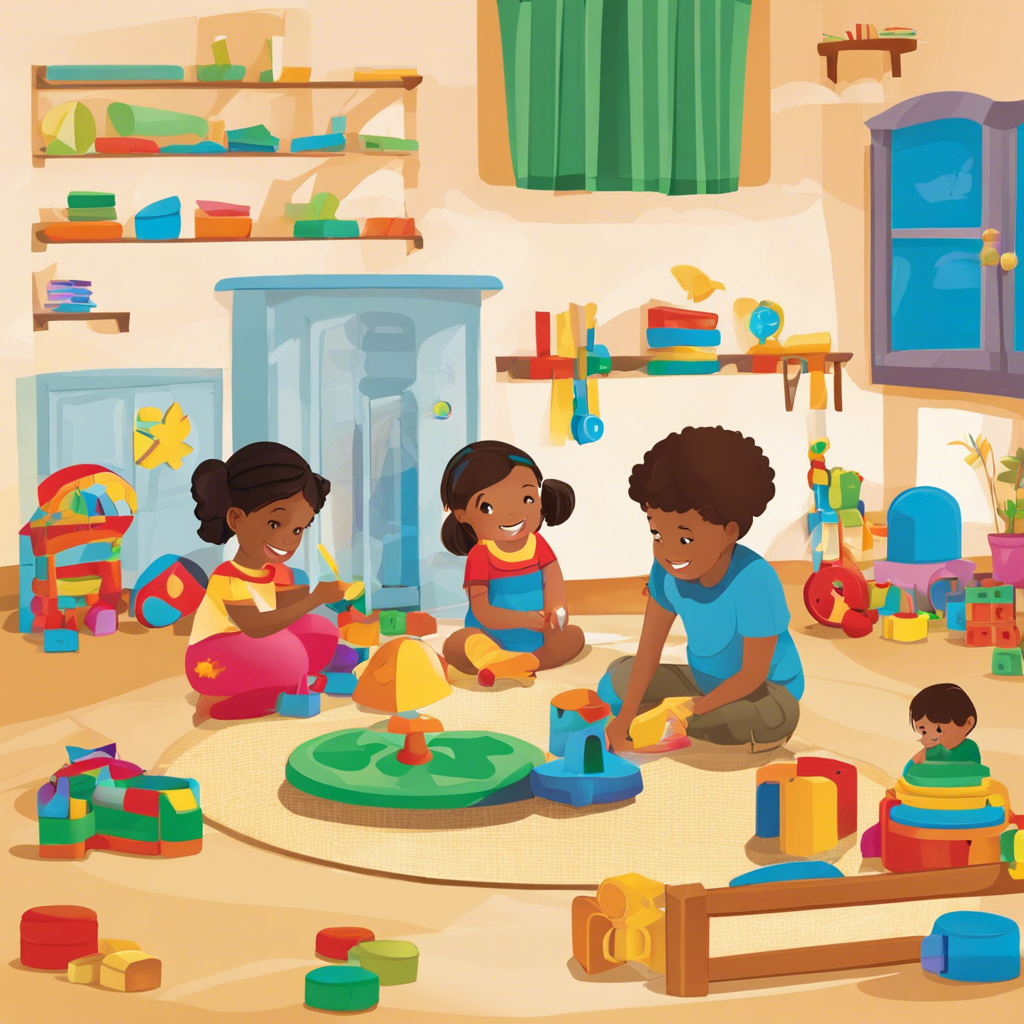Exploring the benefits of play-based learning and its impact on early childhood development.
Play is an essential part of a child’s life, and its importance extends far beyond mere entertainment. Play-based learning is a powerful approach in early childhood education, fostering a rich and stimulating environment for young minds to grow and develop. This article delves into the concept of play-based learning, its numerous benefits, and its role in shaping children’s cognitive, social, and emotional growth.
Understanding Play-Based Learning
Play-based learning is an educational approach that recognizes the intrinsic value of play in a child’s development. It goes beyond structured lessons, allowing children to explore, discover, and learn through hands-on experiences and interactive activities. In this learning environment, children are encouraged to be active participants in their learning process, fostering a sense of autonomy and curiosity.
This method draws from various theories and research in child development and education. It has gained widespread recognition and is widely implemented in early childhood settings. For a deeper understanding of its principles and application, explore the resources at [Play-Based Learning in Early Childhood](https://www.earlychildhoodaustralia.org.au/play_learning/).
The Benefits of Playful Learning
Cognitive Development
Play-based learning significantly contributes to cognitive development. Through play, children engage in problem-solving, decision-making, and creative thinking. They develop essential skills like critical thinking, imagination, and innovation, which are crucial for academic success and future learning. The article Why Play-Based Learning Belongs in Your Classroom highlights these benefits and provides practical ways to incorporate play into teaching.
Social and Emotional Growth
Building Social Skills
Play-based learning offers ample opportunities for children to interact with their peers, fostering the development of social skills. Through play, children learn to cooperate, negotiate, and resolve conflicts. They understand the importance of teamwork and develop empathy and respect for others. These social skills are fundamental for building positive relationships and adapting to social norms.
Emotional Regulation
Play also serves as a platform for children to express and manage their emotions. As they engage in imaginative play, they learn to recognize and cope with various emotions. Play provides a safe space for children to explore and understand their feelings, fostering emotional intelligence and self-regulation.
The Playful Learning Environment
Creating a Stimulating Space
The physical environment plays a vital role in facilitating play-based learning. A well-designed learning environment should offer a variety of engaging materials and open-ended resources to stimulate children’s curiosity and creativity. This could include art supplies, building blocks, costumes, and natural elements like sand or water. For ideas on setting up an enriching play-based learning environment, refer to the article Play-Based Learning: How Does It Look in the Classroom?
Teacher’s Role
Teachers play a crucial role in guiding and facilitating play-based learning. They create a supportive and responsive atmosphere, encouraging children’s exploration and discovery. Teachers observe, interact, and provide scaffolding to extend children’s learning, ensuring a meaningful and engaging experience.
Questions and Answers
How does play-based learning impact language development?
Play provides a rich context for language acquisition. Children engage in conversations, narrate their play, and use language to communicate their ideas. This natural use of language enhances their vocabulary, grammar, and communication skills.
Can play-based learning be adapted for different age groups?
Yes, play-based learning can be tailored to suit various age groups. It can be as simple as age-appropriate toys and activities for infants and toddlers, to more complex imaginative play and problem-solving for older children.
How can parents support play-based learning at home?
Parents can create a stimulating home environment by providing open-ended toys and materials that encourage exploration and creativity. Engaging in play with their children, asking open-ended questions, and extending their play experiences can significantly support their learning.
Conclusion
Play-based learning is a powerful approach that harnesses the natural power of play to educate and develop young minds. It fosters a love for learning, enhances cognitive and social skills, and supports emotional well-being. By creating a stimulating environment and providing ample opportunities for exploration and discovery, play-based learning lays a solid foundation for children’s future learning and development. As educators and parents, embracing this approach can significantly contribute to nurturing the whole child.
3 External Links:
1. Play-Based Learning in Early Childhood (https://www.earlychildhoodaustralia.org.au/play_learning/)
2. Why Play-Based Learning Belongs in Your Classroom (https://www.scholastic.com/teachers/articles/teaching-content/why-play-based-learning-belongs-your-classroom/)
3. Play-Based Learning: How Does It Look in the Classroom? (https://www.teachstarter.com/blog/play-based-learning-how-does-it-look-in-the-classroom/)
